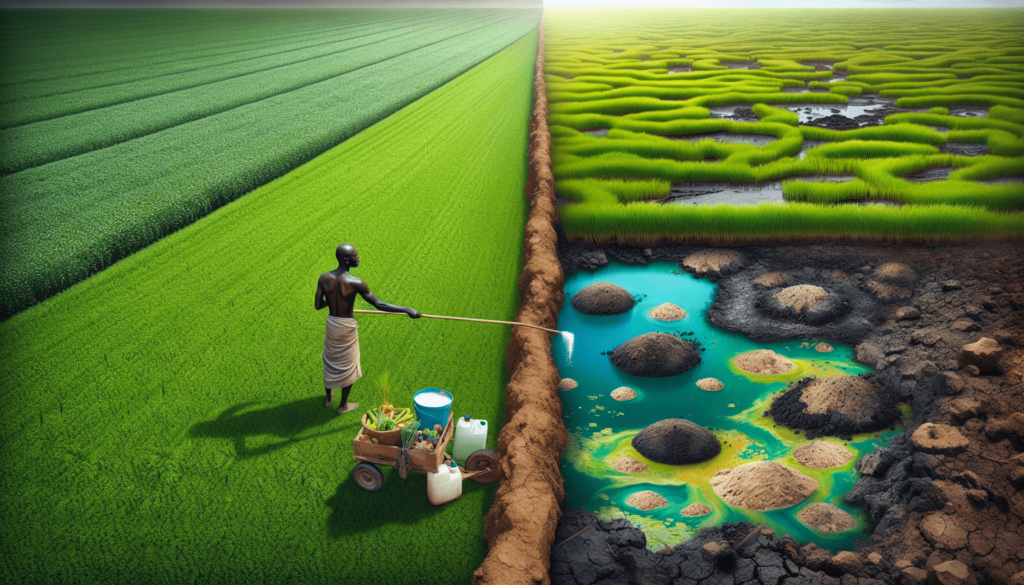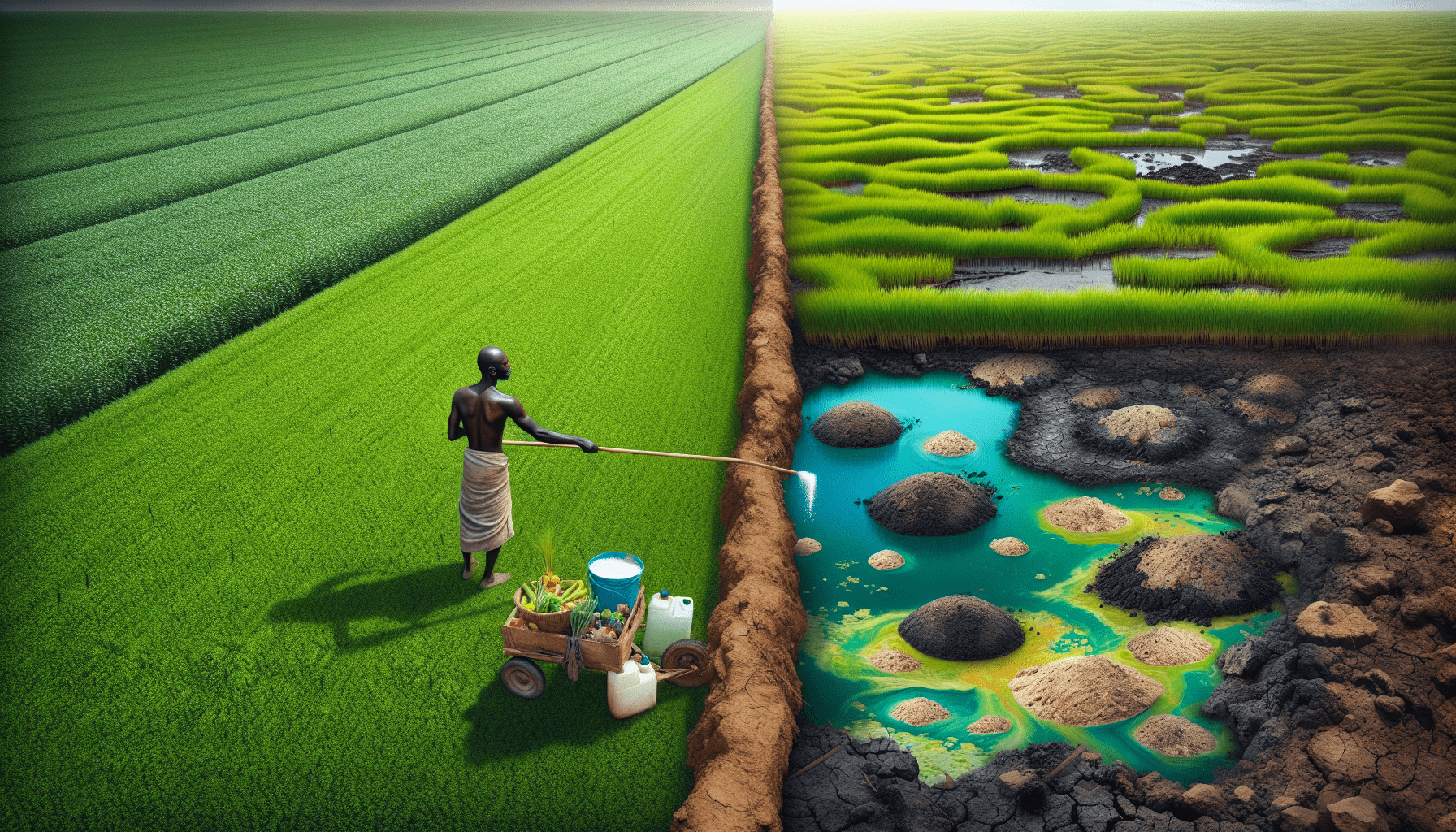Welcome to our article on “The Environmental Impact Of Chemical Fertilizers”. In this piece, you will learn about how chemical fertilizers contribute to environmental issues, such as water pollution, soil degradation, and greenhouse gas emissions. Understanding these impacts is crucial in promoting more sustainable farming practices for a healthier planet. Let’s dive in and explore the effects of chemical fertilizers on our environment.
Have you ever wondered about the environmental impact of chemical fertilizers?
Chemical fertilizers have been widely used in agriculture for decades to enhance crop production. But have you ever stopped to think about the consequences of using these chemical compounds on our environment? In this article, we will delve into the environmental impact of chemical fertilizers and explore the implications they have on our ecosystems, water sources, and overall sustainability.
What are chemical fertilizers?
Chemical fertilizers are synthetic or inorganic substances that are added to soil to provide essential nutrients to plants. These fertilizers are typically made up of nitrogen, phosphorus, and potassium, which are essential for plant growth. While chemical fertilizers can help boost crop yields, they also come with a host of environmental drawbacks.
How do chemical fertilizers impact soil health?
One of the primary concerns with the use of chemical fertilizers is their impact on soil health. Over time, these fertilizers can lead to soil acidification, which can degrade soil structure and reduce its ability to hold water. Additionally, excessive use of chemical fertilizers can disrupt the balance of microorganisms in the soil, leading to a decrease in soil fertility.

What are the implications for water sources?
The use of chemical fertilizers can also have negative implications for water sources. When it rains, excess nitrogen and phosphorus from fertilizers can leach into groundwater or surface water, leading to nutrient pollution. This can cause algal blooms, which deplete oxygen levels in the water and harm aquatic life. In addition, nutrient pollution can also contaminate drinking water sources, posing a risk to human health.
How do chemical fertilizers impact biodiversity?
Chemical fertilizers can have a significant impact on biodiversity by altering the composition of plant and animal communities. Excessive use of fertilizers can lead to the loss of native plant species and the proliferation of invasive species, which can disrupt ecosystems. Additionally, runoff from fertilized fields can flow into nearby water bodies, affecting aquatic ecosystems and jeopardizing the survival of fish and other aquatic species.

What are the long-term consequences of using chemical fertilizers?
The long-term consequences of using chemical fertilizers are profound and multifaceted. Not only do these fertilizers degrade soil health, contaminate water sources, and disrupt biodiversity, but they also contribute to greenhouse gas emissions. The production of chemical fertilizers is energy-intensive, leading to the release of greenhouse gases such as carbon dioxide and nitrous oxide. These gases contribute to climate change and exacerbate environmental degradation.
The importance of sustainable agriculture practices
In light of the environmental impact of chemical fertilizers, it is crucial to promote sustainable agriculture practices that prioritize soil health, water conservation, and biodiversity. Organic farming methods, cover cropping, and crop rotation are just a few examples of sustainable practices that can help reduce our reliance on chemical fertilizers and mitigate their negative effects on the environment.
Benefits of transitioning to organic fertilizers
Transitioning to organic fertilizers can offer a host of benefits for both the environment and human health. Organic fertilizers are derived from natural sources such as compost, manure, and plant residues, making them safer and more sustainable alternatives to chemical fertilizers. These fertilizers release nutrients slowly, reducing the risk of nutrient pollution in water sources and promoting soil health. Additionally, organic fertilizers can improve soil structure, increase water retention, and support biodiversity.
Ways to reduce the environmental impact of chemical fertilizers
If you are a farmer or gardener looking to reduce the environmental impact of chemical fertilizers, there are several strategies you can employ. Here are some tips for minimizing the negative effects of chemical fertilizers and promoting sustainable agriculture practices:
- Use fertilizers sparingly: It is important to apply fertilizers judiciously and avoid overapplication, which can lead to nutrient runoff and soil degradation.
- Implement nutrient management plans: Develop nutrient management plans that take into account the specific needs of your crops and soil, and aim to minimize nutrient loss to the environment.
- Explore alternative fertilizers: Consider using organic fertilizers, such as compost or manure, as a sustainable alternative to chemical fertilizers.
- Practice conservation tillage: Adopt conservation tillage practices, such as no-till farming, to reduce soil erosion and improve soil health.
- Monitor water quality: Regularly monitor water quality in nearby water sources to ensure that fertilizer runoff is not contaminating aquatic ecosystems.
By taking these steps to reduce the environmental impact of chemical fertilizers, you can help protect our ecosystems, preserve water quality, and promote a more sustainable future for agriculture.
In conclusion
The environmental impact of chemical fertilizers is a pressing issue that calls for immediate action. By understanding the implications of using chemical fertilizers on soil health, water sources, and biodiversity, we can make informed decisions that promote sustainable agriculture practices and protect our environment for future generations. Transitioning to organic fertilizers, implementing nutrient management plans, and practicing conservation tillage are just a few of the steps we can take to reduce the negative effects of chemical fertilizers and build a more resilient and sustainable food system. Together, we can work towards a healthier, more environmentally-friendly future for our planet.

